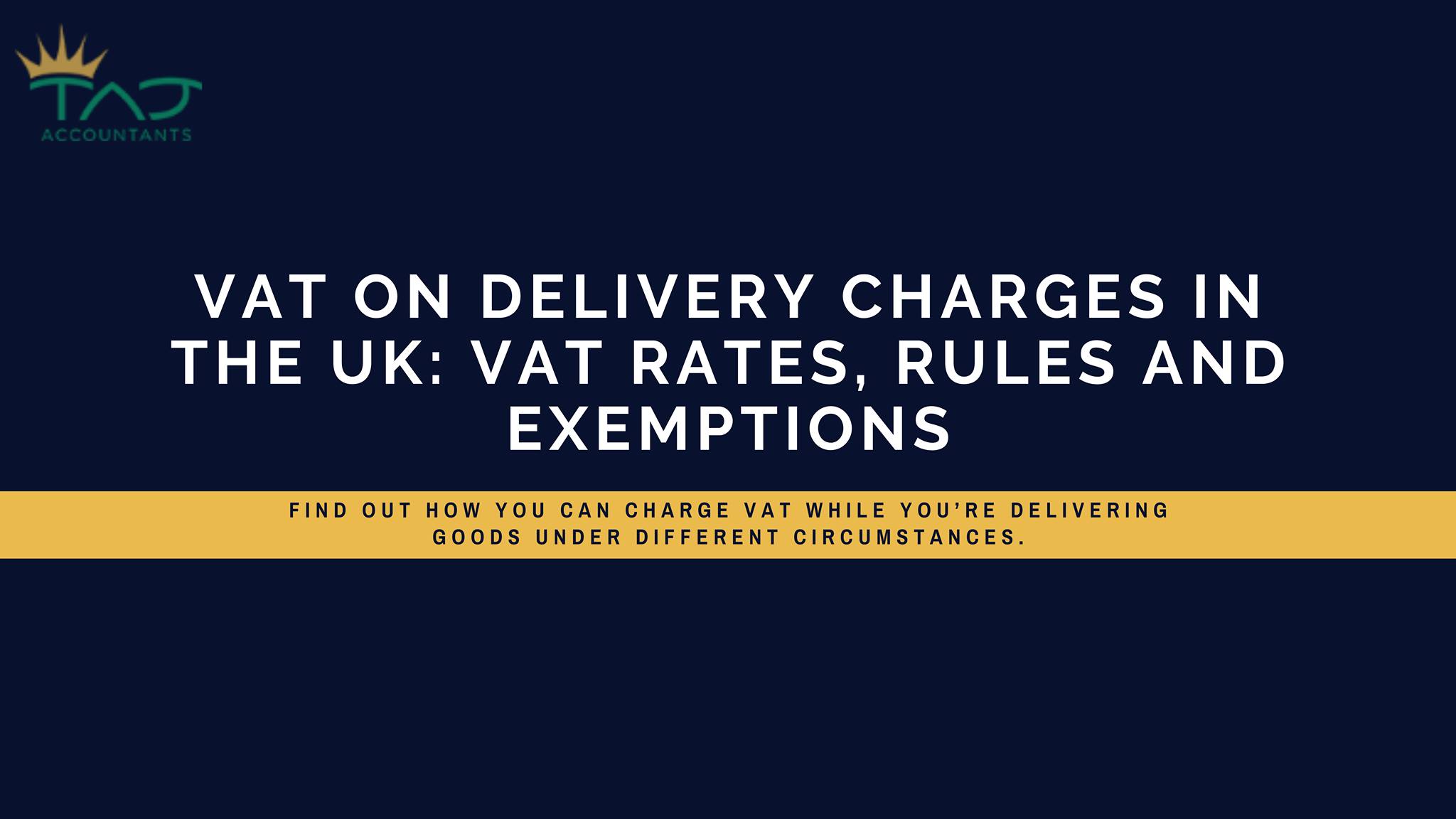VAT on Delivery Charges in the UK: VAT Rates, Rules and Exemptions
Find out how you can charge VAT while you’re delivering goods under different circumstances.
With the COVID-19 pandemic everyone is locked up in their houses and unable to go out without an emergency. Due to the isolated situation, travelling is decreasing while digital subscription services are increasing to another level. Considering the situation, a lot of businesses in the UK are transferring their services to virtual premises.
If you’re one of those small businesses in the UK and you’re planning to go for digital subscription services as so, you need to acknowledge the VAT rates on delivery charges. The various rules and exemptions regarding delivery of products, how postage is purchased, how much is being charged for the item being delivered, and many other factors can be struggling for you to understand if you’re new in this field. Small business accountants in your area can make the task easier for you to understand and proceed. As your reliable small business accountants in East London, Taj Accountants has come up with the explanation of the rules and exemptions regarding your VAT charges on deliveries and postage costs.
Postal Charges and VAT Exemptions
If you consider postal services from the Royal Mail Group Limited, you will not have to pay VAT on the cost of postage under its remit as the ‘universal postal service provider’ in the UK. As the only universal service provider in the UK, you’ll not be able to get the exemption of VAT from any other courier services.
The purchase of unused postage stamps also does not attract VAT but if any delivery charge you make to your own customers includes the cost of stamps you buy from the Post Office then you may have to charge VAT on the whole amount including the cost of those stamps.
VAT On Delivered Goods
A supply of ‘delivered goods’ is where goods are delivered to a customer and the price includes an amount for this service. The way any delivery charge is treated for VAT purposes depends on the circumstances in which the goods are being supplied. For instance,
- If you deliver goods to your customers but make no additional charge then VAT is accounted for the value of the goods based on the liability of the goods themselves ( applies whether or not delivery is required under the contract).
- If you are charging for goods but not for postage, VAT will only be payable on the goods being delivered.
- If you supply goods on approval and make an additional charge for delivering the goods then this is classed as a single supply of delivered goods, and hence VAT is chargeable on the total amount including postage.
- If you’re delivering goods ‘on approval’ then it’ll also not be classified as ‘delivered goods’, and therefore VAT is payable on the postage irrespective of which items the customer purchases.
- Lastly, if your delivery is not included in a contract to supply goods or you deliver someone else’s goods, this is also not classed as ‘delivered goods’, therefore you’ll be liable to pay VAT at the standard rate on the delivery charge irrespective of the goods supplied in the UK.
Claiming VAT for Goods at Zero-Rated VAT and Postage Costs
You are not allowed to charge VAT on delivery of goods which themselves are VAT zero-rated based on the rule indicating VAT treatment for delivery would follow the supply of goods.
On the contrary, if you have been charged VAT for postage services purchased by your business, then your business can claim the VAT back for those business expenses.
VAT Charge for Customers in EU
For customers located in the EU (if they're VAT registered in that country), a zero rate of VAT can be applied for the total price charged including postage. In such cases, you’ll have to ask for their VAT number while supplying your EU customer from stock located in the UK and retaining evidence of purchase and postage. On the other hand, if your customers are not VAT registered then you can charge for VAT including any delivery charge based in the UK.
VAT Charges for Food Delivery
Some food delivery can be chargeable based on some situations. For example, if you’re a hot-takeaway food provider then your food is usually standard-rated for VAT and if you charge for delivery, VAT will be payable. On the contrary, crisps, sweets, beverages, bottled water and other cold-takeaway food is typically zero-rated meaning no VAT will be payable on the delivery of those items.
COVID-19 Update:
VAT payments delayed due to coronavirus pandemic, businesses will not have to make VAT payments due in the period from 20 March until 30 June 2020. Businesses are given until 2020-21 financial year to pay any deferred VAT payment based on the government announcement. Deferred amounts will not be subject to interest or penalties.
How Can We Help You?
At Taj Accountants, our expert team aims to deliver you the most convenient solution for your texation needs. Whether you're a small business owner or a contractor, we tailor each of your cases based on your requirements and provide you services with the top-notch technology based on the HMRC regulation. We deeply comprehend that small businesses need more than just tax return filing service so we aim to give you the most efficient experience and offer you consultancy for all your accounts and taxation issues. Contact us for any VAT related advice.
DISCLAIMER: The purpose of the blog is to provide information and insight regarding the situation. The readers must contact experts before making any decisions based on the information. We highly appreciate you to contact Taj Accountants for further assistance.


